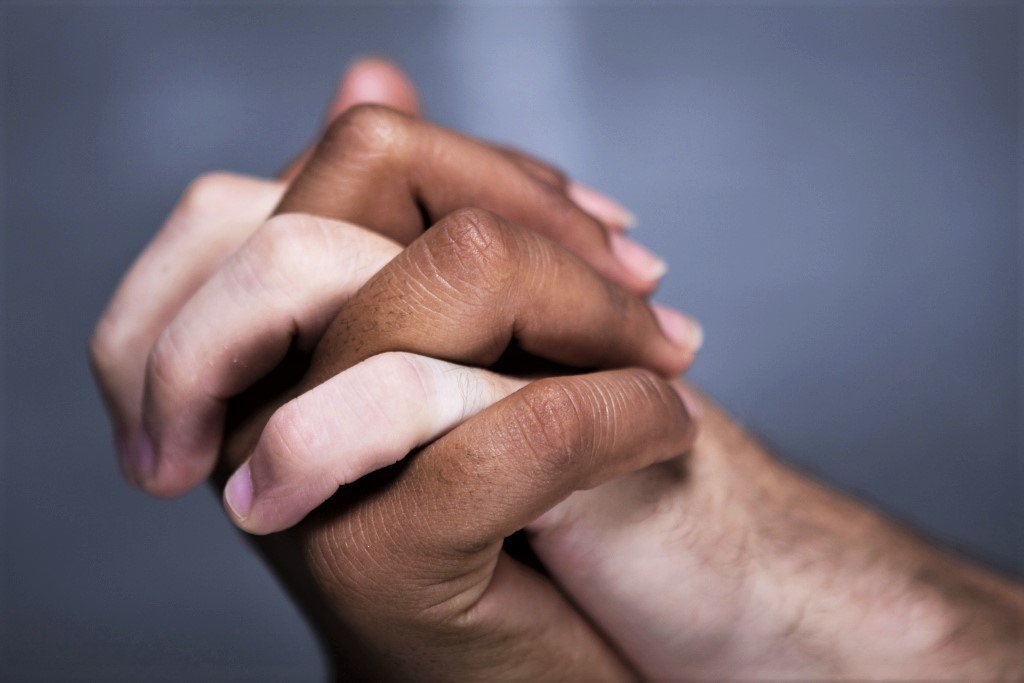“She Was Also Roma if She Was With a Roma Man”: the European Court of Human Rights Fails on Discrimination Again
16 October 2017
Racists hate interracial couples. They hate Roma who have non-Roma boyfriends, girlfriends, husbands or wives.
And they hate the non-Roma in those relationships too.
You will not be surprised to hear about a non-Roma woman who already had several Romani children with her Romani husband, and who was forcibly sterilised in a Hungarian hospital during emergency surgery for a miscarriage. Or about the non-Roma woman forced to listen in a nearby room while her Romani husband was tortured by police in Belgrade in May of this year. The police taunted her about her partner being Romani and from a different religion.

Source: WIN-Initiative/Neleman / Getty
And you won’t be surprised to hear about Maja Škorjanec.1 She and her Romani partner were in a flea market in Zagreb on 9 June 2013 when they got into a fight with two men – two racist assholes who shouted “all Gypsies should be killed, we will exterminate you” and more things like that.2 They attacked Ms Škorjanec’s partner, slashing his hands with a knife and beating him. The assholes were arrested, tried, and sent to prison.
But only for what they did to Ms Škorjanec’s partner. Prosecutors did not try to punish them for what they did to Ms Škorjanec, who had stayed with her partner during the attack and tried to protect him. During the incident, the assholes called her a “bitch”. In fact, one of them shouted at her “What are you going to do now you bitch? I will beat you now”, and then kicked her in the head. Ms Škorjanec’s partner testified at trial; he remembered Ms Škorjanec had said that the assholes told her “she was also Roma if she was with a Roma man”. (No one thought it was necessary for Ms Škorjanec to testify at the trial for hate crimes against her partner.)
The European Court condemned Croatia for the failure to punish the attack on Ms Škorjanec, who the prosecutor said was not a victim of a hate crime “as she is not of Roma origin”. The Court declared that the obligation to deal with hate crimes properly “concerns not only acts of violence based on a victim’s actual or perceived personal status or characteristics but also acts of violence based on a victim’s actual or presumed association or affiliation with another person who actually or presumably possesses a particular status or protected characteristic”.
Anti-discrimination lawyers will tell you that this wordy sentence is a big deal. But it’s not, really. It’s pretty obvious that you can be a victim of anti-Roma hate crime even if you are not Romani, but because you are associated with a Romani person.
What would have been a big deal is if the Court had said what was really going on. Those racist assholes were also misogynists. Their instinctive violence was fuelled by a nasty mix of hatred for a Romani man and hatred for the non-Roma woman who was with him. The use of the slur “bitch” is just as telling, and should have been as legally significant, as the use of the slur “gypsy”.
One of the things the assholes told Ms Škorjanec’s partner while they were chasing him was that “this will be a white Croatia again, you are garbage”. These assholes want a “white Croatia”, and it’s pretty easy to see the link between that racist vision and their impulse to brutalise a white woman who is with a Romani man. This was not just about race; it was about sexist racists wanting to control and punish women who defy their racist views.
An instinct that was more than just racist pushed them to do what they did to Ms Škorjanec.
So why didn’t the European Court say that? And that the Croatian authorities had to investigate and expose this as racist and misogynistic violence?
This was an unusually straightforward case of intersectionality. This is not complicated stuff. These assholes laid it all out, making plain what most haters take some care to hide. The European Court will face more complex cases of intersectionality – claims of sustained inequality on criss-crossing bases where the evidence is much more subtle. Many of those cases will come from the ERRC’s work with Romani victims of complicated, often hidden, persistent patterns of discrimination. It’s a shame the Court didn’t get this one right.
- The ERRC is providing legal representation to the two women mentioned above, but we did not learn about Ms Škorjanec’s case until it was decided – she had her own lawyer. Hers is the kind of case we want to support, to the extent our resources allow.
- You can find the full facts of the case in English, and the judgment of the European Court of Human Rights, which became final on 28 June 2017, here.




